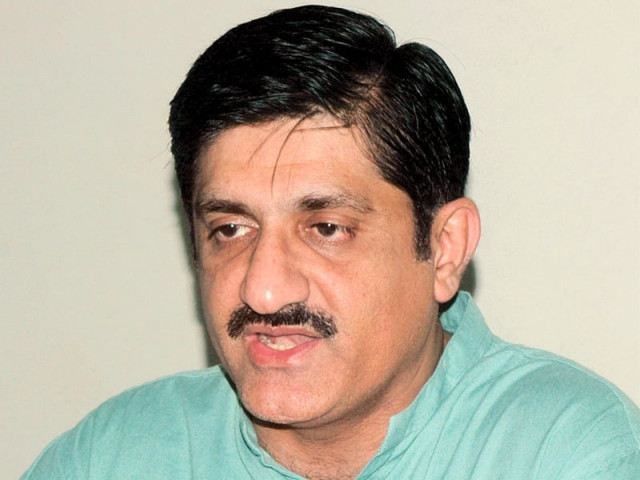Untamed ambitions: Sales tax target revised upwards
Sindh finance minister says revenue board to achieve all set targets.

“The SRB will successfully achieve its revenue target of Rs25 billion in fiscal year 2011-12,” he said. “Our confidence in the SRB can be gauged from the fact that for the upcoming fiscal year, we have revised the sales tax on services target upward to Rs32 billion.”
The Federal Board of Revenue (FBR) had collected Rs18.3 billion in sales tax in fiscal 2010-11; if the Sindh government successfully achieves its revenue target for the current fiscal year, tax collection will clock in 26.8% higher than over the previous fiscal year.
In fiscal 2012-13 the Sindh government also expects to collect Rs41.18 billion under provincial tax receipts (excluding the General Sales Tax on Services), up Rs2.18 billion from last year’s Rs39 billion. Similarly, provincial non-tax receipts are expected to be around Rs23.44 billion in fiscal year 2012-13, up Rs5 billion from last year’s Rs18.45 billion. Total revenue from provincial tax receipts, sales tax on services and provincial non-tax receipts is expected to reach Rs96.63 billion in 2012-13, up 17.13% from Rs82.5 billion in fiscal 2011-12.
An official of the SRB said the board has undertaken various surveys of different sectors that sell their services, but are not in the tax net. “Since the provincial government can more easily monitor local businesses as compared to the federal government, untaxed enterprises cannot evade the tax machinery anymore,” he said firmly. He also said that the SRB is “working in the right direction, and will bring hundreds of new companies into the tax net which had previously slipped under the federal government’s radar.”
Securing the provincial right to collection of General Sales Tax on Services amounts to a monumental achievement for Shah: in his speech, he termed the development a ‘success’ for the SRB, and one of the biggest achievements of the provincial government in the last four and half years of its tenure.
“Pakistan’s 1973 constitution allowed provinces to collect sales tax on services, but they were never allowed to exercise this right,” Shah contended. “Fortunately, provinces are now in a position to exercise this right after nearly four decades.”
Shah also claimed that other provinces of the country are now following in the footprints of the SRB in setting up their own revenue collection boards. “Other provinces are following us because they see the SRB operating successfully in Sindh,” he stressed. “This is important because some people have been discouraging provinces and say that provinces cannot collect taxes due to either the absence of a provincial tax collection mechanism, or problems in those that are operating.”
For some independent economists, however, the SRB’s successes don’t seem as spectacular as they do to Murad Ali Shah.
JS Global Capital Limited Economist Muzammil Aslam said that the collection of Rs25 billion is not exactly a big achievement for the provincial government. He maintained that it was collected from the same sources that the federal government was taxing earlier; and that the provincial government had not brought any new sectors into the existing pool.
Agricultural tax
The Sindh government has failed to achieve the tax on income (agriculture) target set at Rs500 million for the outgoing fiscal year and the target has now been slashed 60% to just Rs200 million.
After the 18th Amendment, agricultural income tax collection is now a provincial matter, but a lack of political will in taxing powerful stakeholders in different sectors is the main hurdle in revenue generation for provinces.
Interestingly, despite its imminent failure in collecting that amount within the current fiscal year, the government has once again aimed to collect Rs500 million in next fiscal year 2012-13.
Published in The Express Tribune, June 12th, 2012.



















COMMENTS
Comments are moderated and generally will be posted if they are on-topic and not abusive.
For more information, please see our Comments FAQ